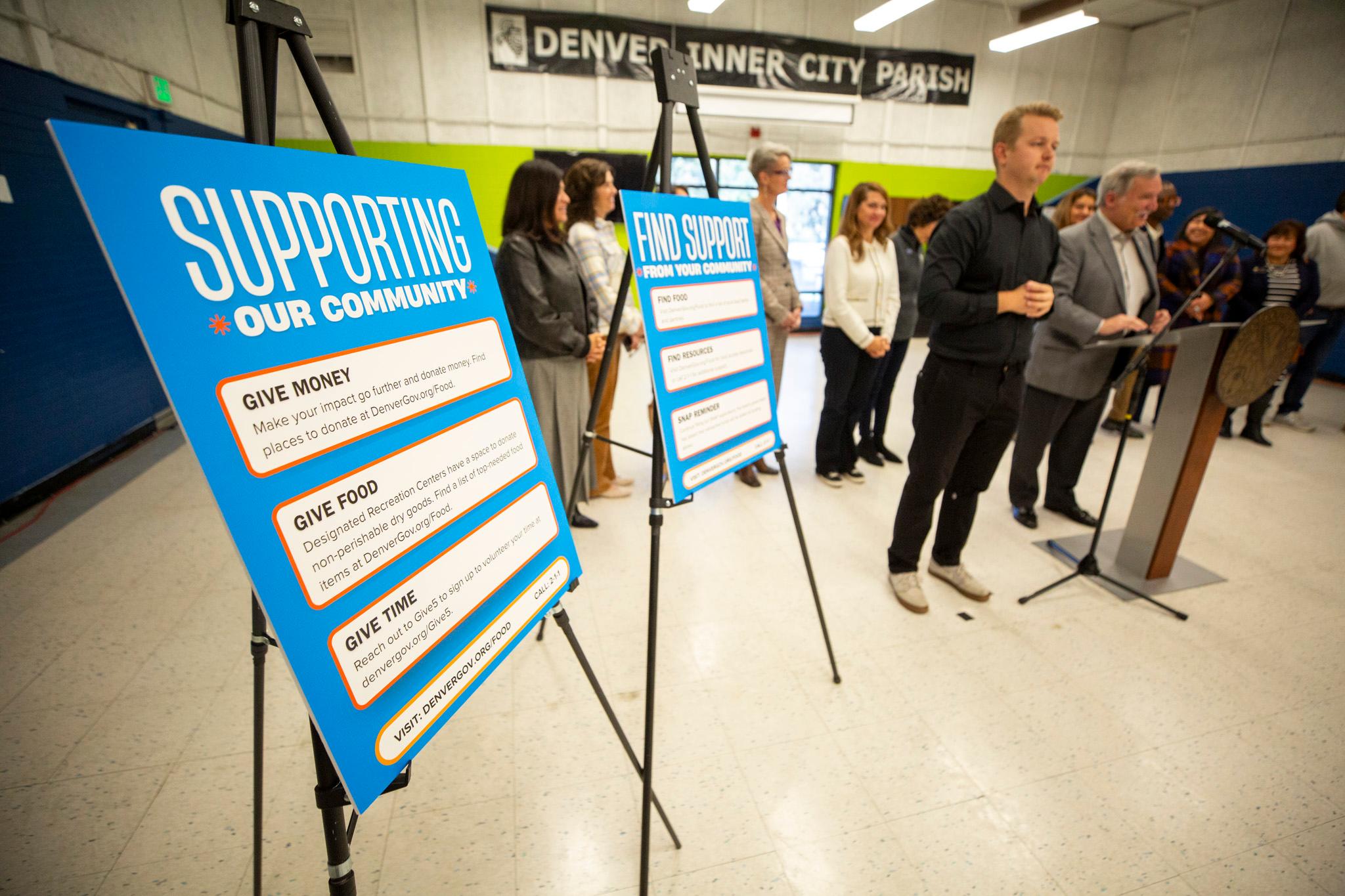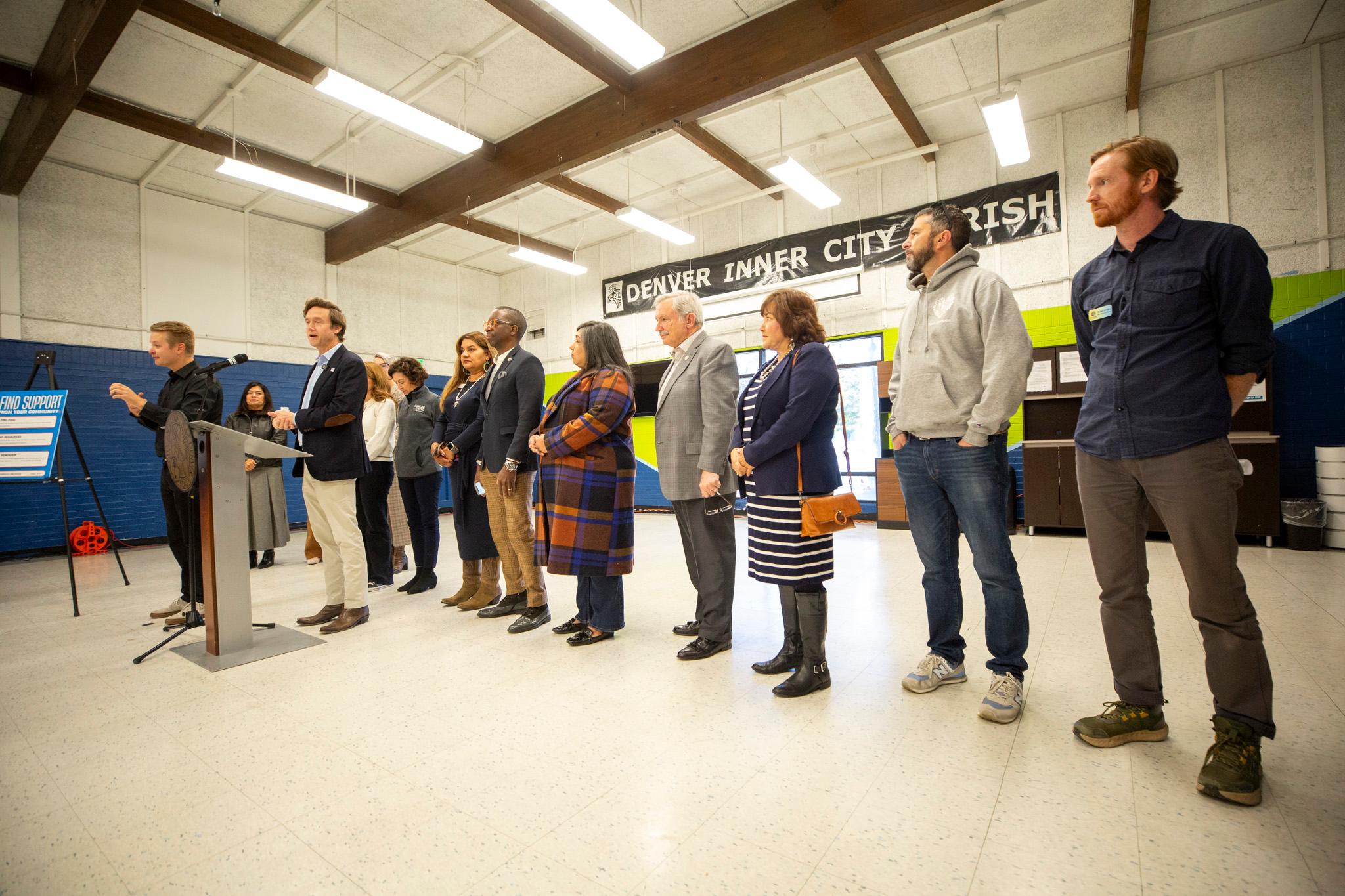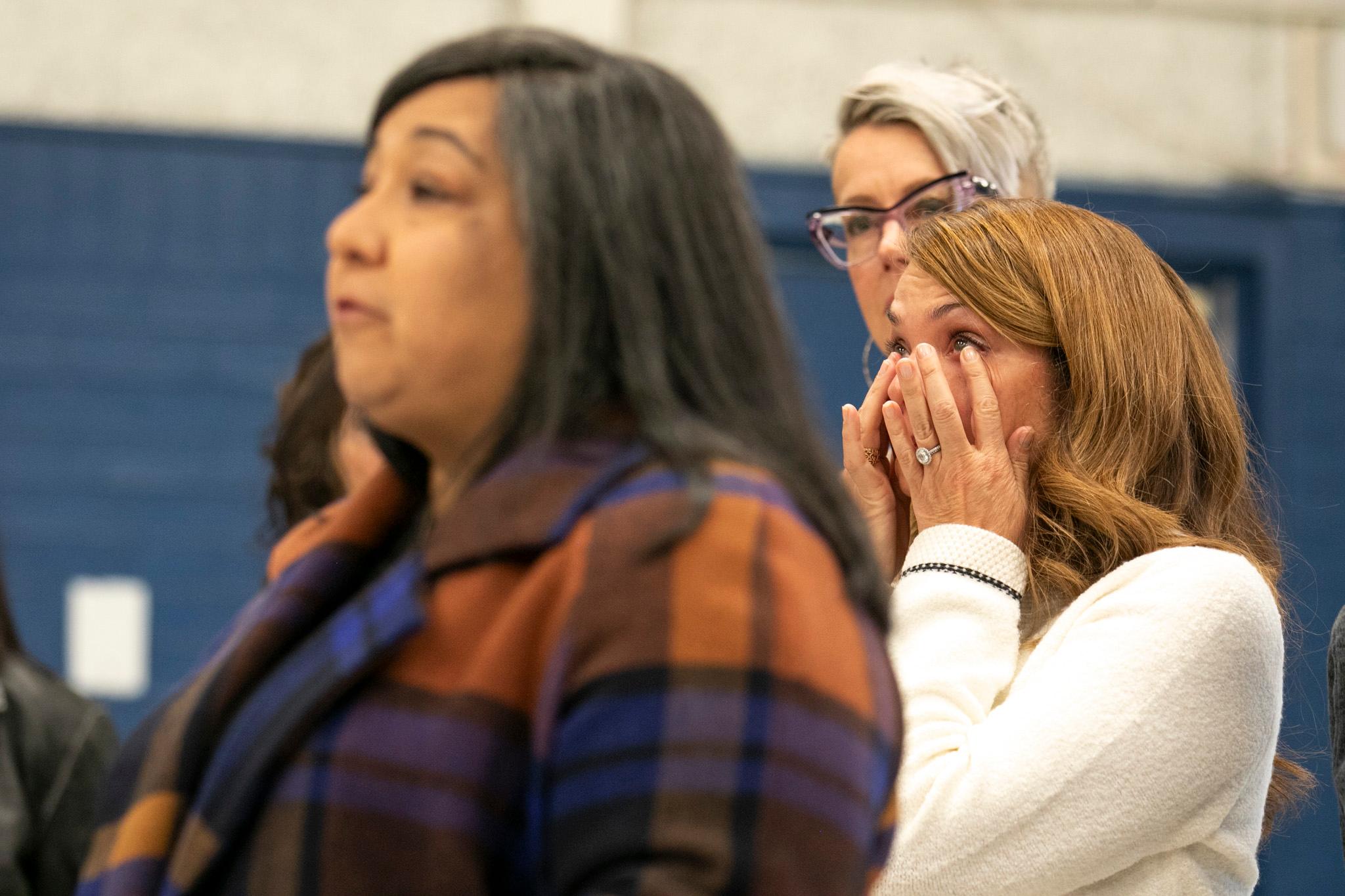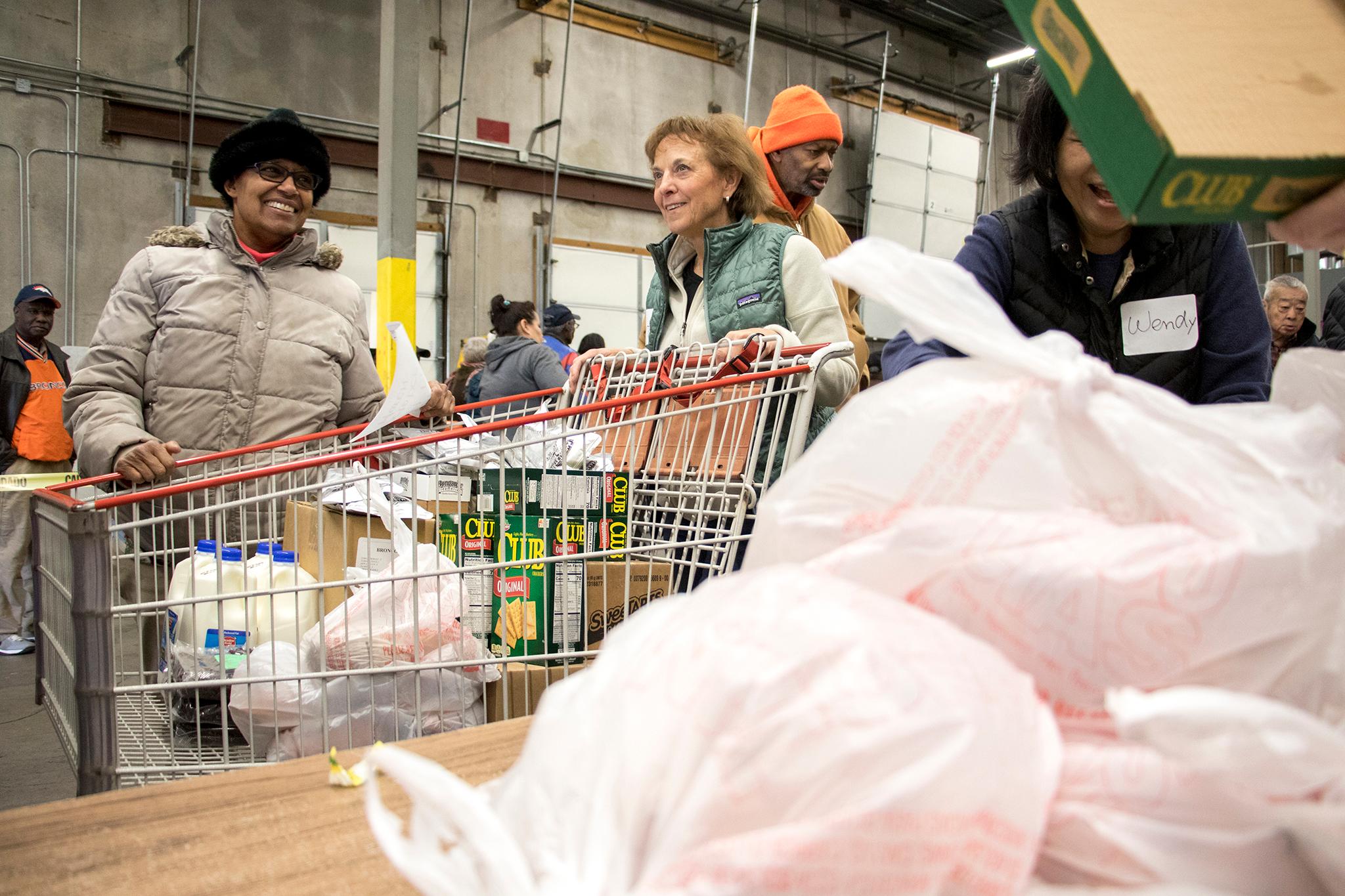Update — 3:12 p.m. on Friday, Oct. 31, 2025
Two federal judges ruled nearly simultaneously on Friday that President Donald Trump’s administration must continue to fund SNAP, the nation’s biggest food aid program, using contingency funds during the government shutdown.
Denver food banks are bracing for Saturday, when the federal government plans to cut off access to SNAP benefits, leaving thousands of residents uncertain how they will get food on the table.
Mayor Mike Johnston estimates nearly half of those affected are children.
“That means when you have kids showing up at your house tomorrow night to trick-or-treat, one out of seven of those kids … will not know where they're going to get food when they go back home the next day,” he said on Thursday morning.
If you need immediate help or are looking for ways to contribute, click here to skip to the bottom of this story.
He suggested residents put out packages of ramen and mac-and-cheese along with candy. But he didn’t stop there. Johnston and other city leaders say they have plans to address the hunger crisis.
Johnston said the city will accept food donations at some rec centers, and a new web page will help people find assistance, donate and volunteer. Meanwhile, nonprofits are staffing up for an onslaught of requests and asking the community for additional support.

What’s happening with SNAP in Denver?
The Supplemental Nutrition Assistance Program is meant for low-income families, providing a card that is loaded monthly and can be used to buy groceries at certain stores.
On Saturday, SNAP benefits (also known as food stamps) are set to be suspended as part of the larger government shutdown. It would be the first pause in the program’s history. Twenty-five states, including Colorado, have sued to keep the program running, especially since the federal government has contingency funds for this purpose.
A federal judge has signaled she may intervene to keep the benefits available, but the threat of a freeze is looming larger by the hour.
If the benefits are suspended, recipients could find their reloadable SNAP debit cards suddenly stop working.
“We are in that battle because we are grateful that Democrats in Washington are refusing to cave on what will be a threat to double the health-care costs for Coloradans in the proposed legislation of Trump's budget-busting bill,” Johnston said.
The federal government has a $5 billion rainy-day fund to float SNAP during emergencies. But President Donald Trump’s administration is refusing to release the funds, potentially leaving tens of millions of residents unable to buy food. The Trump administration has blamed Democrats for the shutdown, saying it was the “Far-Left” that is denying help to “mothers, babies, and the most vulnerable among us.”
The shutdown began because Congress failed to pass a new budget or temporary funding bill in time. Republicans in Congress want to pass a so-called “clean resolution” to keep the government funded for now at current levels, while Democrats are pushing to include extension of tax credits that make health insurance cheaper. Without those credits, costs for many Coloradans are set to double.
“It's so frustrating,” Councilmember Kevin Flynn said.
But communities across the Denver metro aren’t just waiting for federal assistance. They’re preparing to navigate the local crisis largely on their own — and the needs extend beyond SNAP.

Nonprofits are bracing for another surge of hunger.
Nonprofits are already being bombarded with requests for help, and they lack other federal support they previously depended on.
For example, during the pandemic, the federal government provided 50 percent of the food supply for the Food Bank of the Rockies. Now, it’s less than 15 percent of the supply. The rest is coming from donations.
“The rates of food insecurity are at a 10-year high, and that's mostly due to wages not keeping pace with inflation, the rising cost of living, the rising cost of housing,” Erin Pulling, the food bank’s CEO, told Denverite.
All financial donations to Food Bank of the Rockies are currently going straight to food purchases, she said. The organization can buy large quantities of food and hygiene items wholesale, making cash donations more effective than food donations, she said.
The United Way’s 211 crisis hotline has seen a 20 percent increase in calls this week and plans to increase hotline staffing if SNAP is cut. Most of those calls have been related to food insecurity.
“I had the privilege of sitting with a call navigator yesterday who took a phone call from a grandmother who understood that her benefits were running out,” Mile High United Way CEO Christine Benero said. “She is responsible for her 10-year-old granddaughter, and she just wanted to know if we could help her get milk and eggs.”
The issue goes far beyond SNAP.
Veronica Byrne, the development director at Denver Inner City Parish, met on Thursday with a group of seniors at a technology class. She worried that in two days they could lose the food assistance they depend on.
Many seniors she works with are facing homelessness.
“Older adult funding is rapidly shrinking in the state and also at a federal level,” she said.
Since the pandemic, her organization has seen a 50 percent drop in funding from foundations that now have shifting priorities. Yet needs are higher than during the peak of COVID-19, she said.
SNAP is a crucial way to keep people on their feet and recovering and getting what they need so they could build a happy and healthy, sustainable life, she said.
Brian Loma, an advocate with Green Latinos Colorado, is pushing business owners to quit throwing out food and instead ensure residents eat.
“Part of the systemic solutions that the mayor's office talked about today is eliminating the food that goes to the landfill,” Loma said. “Forty percent of the food that is grown or prepared in the United States is thrown away.”
Reuben Gregory, the acting executive director of Denver Inner City Parish, said long-term hunger solutions need more than just charity.
“Our charitable food system isn't really the answer,” he said. “It's a Band-Aid. What we really want, and what we'd like donations to eventually help with, is a systemic solution to hunger and poverty.”
Here’s what Denver is doing.
The city is collecting food donations at rec centers and connecting people with both services and volunteer opportunities online.
Councilmember Darrell Watson, whose family depended on government assistance when he was a child, is co-chairing a team to address hunger in the city.
He’s optimistic that residents will take care of each other, with support from the city and hunger-prevention groups.
“When our backs are to the wall, we have always come together,” Watson said. “We've always ensured that we put our people first.”

Councilmember Jamie Torres remembered waiting in lines at food pantries with her mother. Now, she leads a district where a fifth of the city’s SNAP recipients live — seniors, children and people with disabilities.
For her, ensuring Denver’s residents are fed is an investment in the future.
“What we're talking about is supporting the families and children who will grow up to be the leaders of this city,” she said.
How to get help – and give it.
You can call 211 or visit 211colorado.org for a comprehensive list of more than 4,000 food pantries and other resources in the area. That number works whether you need services or want to offer help.
Meanwhile, recreation centers across every city council district will begin accepting and distributing food donations this weekend. Those include:
- Aztlan Recreation Center: 4435 Navajo St.
- College View: 2525 S. Decatur St.
- Rude Recreation Center: 2855 W. Holden Pl.
- Eisenhower Recreation Center: 4300 E. Dartmouth Ave.
- Montclair Recreation Center: 729 Ulster Way
- Cook Park Recreation Center: 7100 Cherry Creek S. Dr.
- Athmar Recreation Center: 2680 W. Mexico Ave.
- Hiawatha Davis Recreation Center: 3334 Holly St.
- Glenarm Recreation Center: 2800 Glenarm Pl.
- Carla Madison Recreation Center: 2401 E. Colfax Ave.
- Green Valley Ranch Recreation Center: 4890 Argonne Way
The city also set up a website where residents can find out how to get food in their neighborhoods, where to donate, and how to volunteer.












